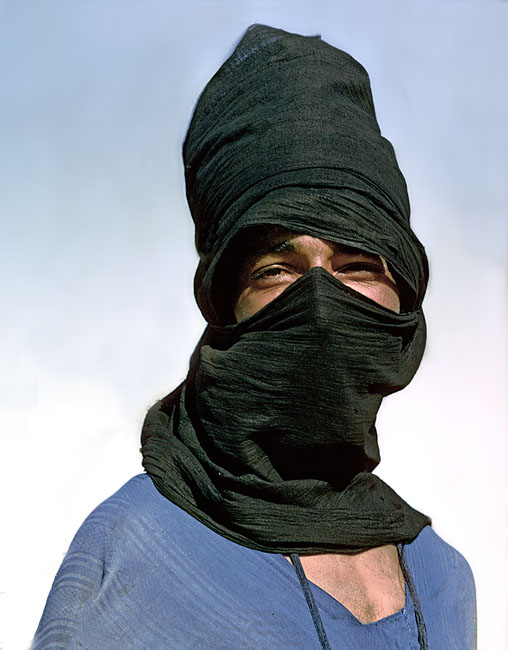Who would have thought that a veil, considered a regular fashion of women, would rather be synonymous with men?
Well, in mostly Mali and Algeria, the nomadic people, called the Tuaregs (like the Kurds of the Middle East), have a rather twisted tradition where the men – not the women – are always seen in veils.
Composed of some 2 million people who live across the Sahara Desert, and are also spread across some North African countries of Mali, Niger, Libya, Algeria and Chad, the Tuaregs are a largely Muslim people.
Although Muslims, they practice a different and distinctive brand of the Islamic religion. They call it the Maliki sect, resulting from the teachings of the great prophet, El Maghili, who came among them in the early 16th century.

The Tuaregs are part of the Berber group of people and are mostly known for their cattle rearing profession with their territories also extending from Western Sahara to the northern portion of Western Sudan.
They mostly keep art in the form of jewellery, leather and metal saddle decorations, including finely crafted swords.

However, the Tuaregs have been associated with Libya’s former leader, Muammar Gaddafi, and believed to be sheltering one of his sons, Saif al Islam Gaddafi. This is because Gaddafi recognized that they are determined and resourceful fighters.
He is also believed to have promoted thousands of Tuaregs in the Libyan army, encouraging them to be loyal to him. It makes sense that following his death, they have continued to provide refuge for his son.
Being an ethnic population that crosses the boundaries of several countries, but with no majority people in any one country, the Tuaregs have been pressing for better representation for their own territory.
For thousands of years, the Tuareg economy revolved around trans-Saharan trade. There are basically five trade routes that extend across the Sahara from the northern Mediterranean coast to the African cities on the southern edge of the desert.

The merchants of Tuareg are responsible for bringing goods from these cities to the north. From there, they are distributed throughout the world.
Due to the nature of transport and the limited space available in caravans, Tuareg usually traded in luxury items, which took up little space and on which a large profit could be made.
Tuareg were also responsible for bringing enslaved people north from West Africa to be sold to Europeans and Middle Easterners. Many Tuareg settled into the communities with which they traded, serving as local merchants and representatives for their nomadic relations.

In all these, the Tuareg society also has an elaborate structure. The main division is between the noble class and the various serf classes.
In most Tuareg groups, there are also whole tribes of ineslemen or marabouts. These are “holy people” who, like other tribes, are led by their own chiefs.
Among some of the Berbers, such tribes are considered to be different from ordinary men. They are believed to possess the powers of protection and healing, even after death.










